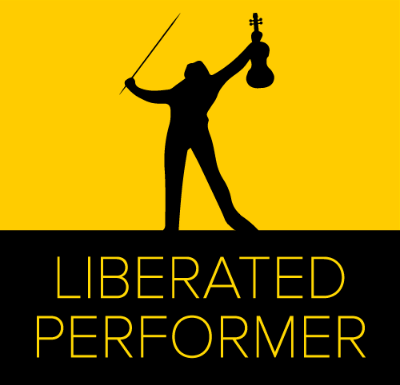How to Improve Creativity In Music Part 3: Electronic Dance Music
Welcome to part three of improving your creativity in music! So far we have covered the benefits to exploring the baroque and jazz cultures and how it can make you a better performer. In this part, we will explore some of the most powerful performance experiences I have ever felt.
In all my life, I never thought I would be performing at popular music festivals. In fact, I had never been to one before. However, I was presented the chance to get outside the concert halls and collaborate with my classmate Alex Seaver. Alex is a former horn player from Juilliard that became a DJ with his long time friend Logan Light. Together, they formed the epic duo named Mako.
Our first set was at EDC Las Vegas, the biggest dance festival in the United States. For those that have no idea what I'm talking about, check out this trailer and welcome to mainstream rave culture.
As you can see, this place is quite similar to Carnegie Hall. *end sarcasm*
Anyway, here are a couple things I learned during my experience.
A Different Kind of Audience
Somewhere during the 20th century, there were a set of rules created for experiencing classical music concerts. For example, you cannot talk, clap in between movements, and make any noise without someone glaring at you. In fact, I remember as a child my palms would sweat into the program as I tried not to move in fear of ruining the performance. But what about the crowd at EDC?
Completely different. Before we even took the stage, there was this anticipation like none other. The audience was cheering and chanting "Mako" as they prepped themselves for the greatest set ever. When Mako revealed themselves, the crowd went wild with a pure, authentic expression of joy and excitement. They waved their signs, got their phones ready, and some were on the verge of crying. That's how much this performance meant to them.
Mako dropped their first song and the audience began dancing to the beat and singing along with the lyrics. It was everything 20th century classical music was not. It was a concert experience where there was no wall between performer and audience and no rules about expressing how much you love the music. With such an active audience, a positive energy feedback loop is created. It is an absolutely surreal feeling to having the crowd massively cheering you on, and then for you to be rocking out and giving that energy right back. Now one can argue that a classical musician can feel the same thing from the audience, and it certainly happens, but not to this level.
A Different Kind of Performance Value
Both classical music and EDM performances value the universal principles of music such as pitch, rhythm, etc. However, their performance values differ in terms of how much weight they give to each aspect. For example, a good classical music concert highly values accuracy while in pop, the performance spirit is the most important thing. Now of course you could argue against this claim as both genres value these, but I'm speaking in terms of what's most important. If you went to a classical concert and there was sub average accuracy, you probably wouldn't think it's a good performer even if that performer was into the music. Meanwhile, if you went to a dance festival and the DJ wasn't putting out enough energy, you probably wouldn't think it's a good concert even with flawless mixes.
So what happens when you put a classically trained violinist into a rave? Well, I quickly felt the difference between performance styles as we went through the set during soundcheck. I began by bringing the standard classical music approach to the stage. I focused on accuracy, embodied the music as much as I could without upsetting intonation, timing, and sound, and played what I thought was good enough. Upon watching me, Alex quickly told me that "this was not Lincoln Center, you can move more, and bring extra energy." After hearing this, I felt a little uncomfortable shifting the values I had so engrained in me over the past 20 years, yet it was liberating. For the first time, I could just focus on performance spirit and walk out like a rockstar.
However, it raises the question of "does it mean I totally forget about technique when I perform?" Absolutely not. In fact, I prepared for EDC with my standard 200 step method I used for winning auditions. With a full proof method, the practice sets you free to express yourself on stage with the only difference being in the allocation of focus. For example, in classical music you want to focus on the music, but also have an ear for how you are actually sounding to the audience. At dance festivals, you want to trust your technique and go all out on performance spirit.
Conclusion
Performing at these festivals have changed my performance career and life. They have given me the experiences of getting 100% in touch with my expression and feeling the intense positive energy feedback loop of an engaged audience and performer. These experiences have shown me amazing value and every time I walk on stage in a classical music setting now, I make sure I create the energy I would as if at a dance festival. Does this mean I get the crowd jumping up and down? Actually yes, it happens at ETHEL concerts quite often. However in classical music, there are a variety of energies that change in a second. It's what makes classical music so unique and beautiful. So, whatever the energy is, I go after it with full force so the audience can get sucked into the musical journey and lose themselves.
-Coach Cory
contact@liberatedperformer.com



